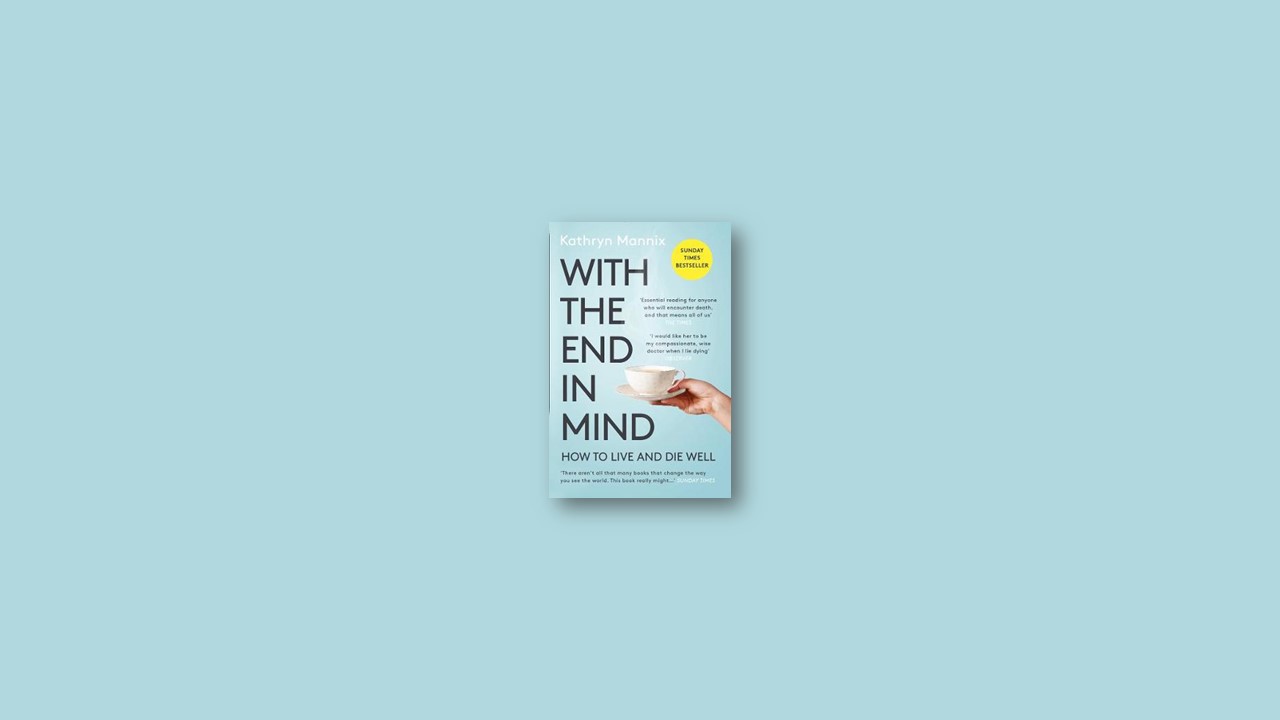Patterns
Knowing what to expect is immensely comforting to the dying person and their supporters. Once we all know what we need to know, we can relax with each other. It’s surprising how relaxed a well-prepared family can be around a deathbed.
When you are dying, where would you like to be? What are the pros and cons of being at home in your own bed (perhaps moved to a more accessible room), or staying with a relative or friend, or in hospital, or in a care home, or in a hospice?
If you have seen a death that appeared uncomfortable or shocking, how have you dealt with that memory? What information in what you have read in this section could allow you to re-evaluate what you experienced?
If you regularly have upsetting memories of a difficult situation, whether it is a death or something else, and especially if the experience still feels as though it is happening again there and then, this suggests that your experience may be causing post-traumatic stress disorder (PTSD). Your doctor can help. Please don’t suffer more than you need to – ask for advice.
My Way
Stories have shown different ways in which people cope with difficulties: trying to keep control; avoiding the truth; sinking into helplessness; simply accepting whatever fate has in store; using resilience to adapt to events; and becoming anxiously preoccupied with the threat of the situation. Which of these patterns do you recognise in yourself? You may have more than one style.
Which coping styles do you recognise in the people closest to you? How might your individual styles make things easier or more difficult for each other if you had to deal with a challenge together? How could you have a conversation now to acknowledge each other’s styles?
Each of these coping styles has positives as well as negatives – for example, helplessness has the attribute of allowing others to help, which can be a struggle for people with some of the other styles. So remember to look for each other’s strengths and resilience, as well as any potential ‘flashpoints’.
If you worry about having a conversation like this with someone you know well, then perhaps you could join in a ‘death café’, either on your own or with your loved one. These are friendly, informal gatherings at which people can mull over various aspects of death and dying over a comforting warm drink and excellent cake. There are death café meetings in more than forty countries, and they always welcome new visitors.
Naming Death
Notice how often you hear euphemisms like ‘passed’, ‘passed away’, ‘lost’, in conversations and in the media. How can we talk about dying, plan our care or support those we love during dying, theirs or ours, if we are not prepared to name death? Do you and your family avoid the D-words? If you do, how could you begin to change this?
If you were approaching your own death, who would be the important people to tell? Who do you hope would tell you if they knew that their death was approaching?
How do you and the people you are closest to make their views known? Do you all like to tell people clearly, or do some of you prefer to drop hints? How good are the rest of you at picking up each other’s cues?
Do you know what kind of care your loved ones would like as their life’s end approaches? Or have you assumed that what you would like is also what they would like, or that you will be able to guess if you need to?
If you were close to dying, would you prioritise being as awake and alert as your condition would allow, or would you prefer to be sleepier and less aware of the situation and the people around you?
These are big questions. They may take several conversations to work through. Do consider taking the time to discuss them now, rather than waiting until it becomes a matter of life or death. The staff in the emergency department, the rapid response team or the ambulance crew will be glad to know that you have made your wishes clear. And so will the loved ones who are charged with the responsibility of representing your views at a very challenging time.
Looking Beyond the Now
Stepping back to find perspective is a challenge. It requires the insight to acknowledge that there may be another way to look at a situation, and the humility to be prepared to examine our own view, and to change our mind if necessary. It may be easier to step back if we approach life with an attitude of curiosity rather than certainty, intrigued by what we may discover for and about ourselves.
Stepping back is not easy, but it is always illuminating. In his essay ‘My Own Life’, written when he knew he was dying, the great medical writer Dr Oliver Sacks describes becoming able to see his life ‘as from a great altitude, as a sort of landscape, with a deepening sense of the connection of all its parts’. He goes on to say that he feels ‘a sudden clear focus and perspective’. This is the great gift that rewards stepping back – to look anew at what feels familiar and already thoroughly known.
Because we will all die, many of us have developed a view about whether or not we have a right to choose when to end our lives. These views are based on diverse perspectives that include the right to personal autonomy, the duty to protect the vulnerable, the principle of equality before the law, the dignity of human life, the fragility of the human condition, and personal beliefs based on humanitarianism, on the great faiths, on utilitarianism, on virtue. There is no doubt that campaigners on both sides of the debate are motivated by compassion, conviction and principle. And yet, the discussion is so often polarised, noisy and alarming, and seems to bear little relation to what actually happens to people as they approach the last stages of living.
Whatever your own view, it is likely to enrich your perspective if you listen and carefully consider the opinion of those whose view is different. Working in the reality of day-to-day dying, many of us in palliative care roles are exasperated by the trenchant, black-and-white opinions of the campaigners for either view, when we know that the reality is neither white nor black, but a completely individual, ever-shifting shade of grey for each person. The missing perspective on both sides of the debate is the reality of human dying, the unexpectedly gentle progression towards death that most of us will experience, whatever the trials of the preceding terminal illness.
Looking beyond the immediate situation offers us all a richer perspective, and enables the dying to focus on what is most important to them, whatever other ideas the rest of us might have.
Legacy
What legacies have you already inherited from people now dead or no longer known to you? Perhaps material things like books, ornaments, money. Perhaps mementos like letters, postcards, or their modern electronic equivalents. Possibly stories handed down through your family. Maybe you were encouraged as a child by a particular person, or modelled yourself on people whose qualities you admired. These are all forms of legacy.
What legacy have you already generated? You may have given birth to children or to innovative ideas; you may have taught a grandchild how to use a screwdriver or how to see pictures in the clouds; you may have founded a major company or grown a garden. You may have borne sorrow with courage that inspired other people, or quietly supported another in their time of need.
What legacy would you like to leave? Perhaps you are an organ donor; perhaps you have gifted a legacy to an endeavour you wish to support in your will; perhaps you are already preparing memory boxes or albums for your loved ones.
By modelling a way of dealing with a truth that society tries to hide, you can begin a legacy that calls death by name, accepts that it is a part of life, and encourages others to do likewise.
Transcendence
The evidence is that we all reach the end of our lives with a mixture of satisfaction and regret over our experiences – and the time to adjust that balance is now. Every moment of our lives is ‘now’ as we live it. So what can we do that adjusts the balance towards satisfaction and away from regret, even while we are not anticipating the approach of death?
What are the values that guide your decisions in life? How well have you met your own expectations? Do you judge yourself with as much kindness as you judge other people? Is there any change you would like to make so that your way of life fits better with your values and beliefs? What first step could you take?
Thinking about the last messages, who would you like to thank? And what for? Is there a way to let them know of your gratitude? Can you write a letter? Send an email? Shout to the wind? Tell the story of your gratitude to someone who will join you in a moment of appreciation?
What about forgiveness? Whose forgiveness would you like to seek? And what for? Do you need to apologise to someone, or is it time to forgive yourself? How can you express your sense of regret? Perhaps it’s time to make contact with someone, and to offer the first step towards reconciliation. Perhaps for some reason reconciliation is no longer possible. If so, can you think of a way to atone for your offence? If this is causing you great concern, consider talking to a counsellor or a chaplain – no religious belief is required to consult a chaplain, and they have great wisdom in matters of regret and forgiveness.
And then there is all that love to be communicated. Sure, you can leave letters and cards and material goods in your will. But it’s so much more meaningful to say it in person, or to write now, and give them a chance to know that you love them while you are still here. For children and grandchildren, share your happiest memories by annotating photos and letting them see the collection of childish drawings and letters you have kept over the years. Write letters for their future big occasions: finishing school, starting work, graduation, getting married, special birthdays – and do that as well as, not instead of, telling them how much you love and treasure them right now.
It’s your life that you are working on finishing well. It’s a mighty piece of work. Give it the attention and the time you deserve.


